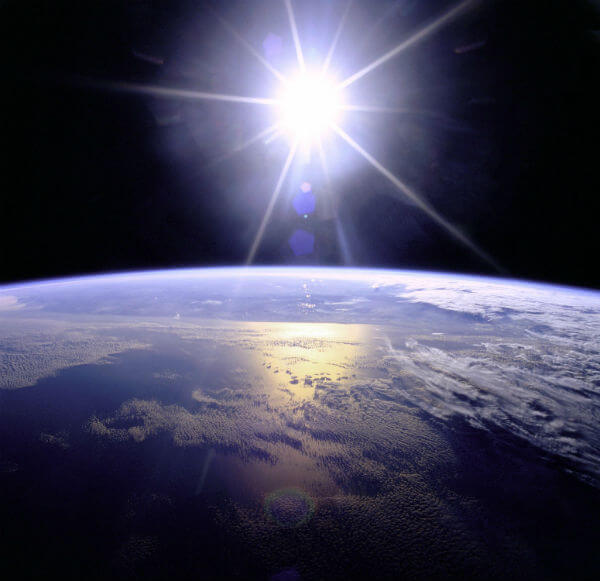
Rebecca Boyle writes: Humanity’s trips to the moon revolutionized our view of this planet. As seen from another celestial body, Earth seemed more fragile and more precious; the iconic Apollo 8 image of Earth rising above the lunar surface helped launch the modern environmental movement. The moon landings made people want to take charge of Earth’s future. They also changed our view of its past.
Earth is constantly remaking itself, and over the eons it has systematically erased its origin story, subsuming and cannibalizing its earliest rocks. Much of what we think we know about the earliest days of Earth therefore comes from the geologically inactive moon, which scientists use like a time capsule.
Ever since Apollo astronauts toted chunks of the moon back home, the story has sounded something like this: After coalescing from grains of dust that swirled around the newly ignited sun, the still-cooling Earth would have been covered in seas of magma, punctured by inky volcanoes spewing sulfur and liquid rock. The young planet was showered in asteroids and larger structures called planetisimals, one of which sheared off a portion of Earth and formed the moon. Just as things were finally settling down, about a half-billion years after the solar system formed, the Earth and moon were again bombarded by asteroids whose onslaught might have liquefied the young planet — and sterilized it.
Geologists named this epoch the Hadean, after the Greek version of the underworld. Only after the so-called Late Heavy Bombardment quieted some 3.9 billion years ago did Earth finally start to morph into the Edenic, cloud-covered, watery world we know.
But as it turns out, the Hadean may not have been so hellish. New analysis of Earth and moon rocks suggest that instead of a roiling ball of lava, baby Earth was a world with continents, oceans of water, and maybe even an atmosphere. It might not have been bombarded by asteroids at all, or at least not in the large quantities scientists originally thought. The Hadean might have been downright hospitable, raising questions about how long ago life could have arisen on this planet. [Continue reading…]

